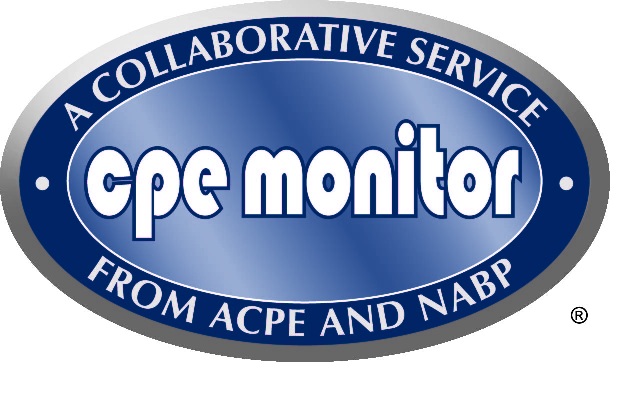-
Review the pathogenesis of diabetes mellitus (DM).
-
Describe and differentiate Type 1 and Type 2 diabetes.
-
State diagnostic criteria.
-
Discuss three acute complications of diabetes with treatment modalities.
-
Summarize clinical findings, management and complications of DKA, HHS and hypoglycemia.
-
Recognize the similarities and differences between DKA and HHS.
-
Define prevention strategies for hypoglycemia in diabetes.
-
Discuss principles of DM Management in children and adolescents.
-
State goals for HgA1C and blood glucose levels for children/teens with diabetes.
-
State common emergencies related to children/teens with diabetes.
-
Recognize developmental stages of children/teens as they related to managing diabetes.
-
Review types of insulin pumps and continuous glucose monitoring utilized for glucose management with children and teens.
-
Identify principles of glucose monitoring.
-
Discuss self-management blood glucose monitoring (SMBG) and continuous glucose monitoring (CGM).
-
Discuss insulin pumps and integration of continuous glucose monitoring.
-
Discuss principles of diabetes management in pregnancy.
-
Describe the metabolism of normal pregnancy and the alterations which occur in overt and gestational diabetes.
-
Describe the diagnostic criteria and screening recommended by the ADA.
-
Describe potential maternal and fetal complications.
-
Summarize treatment options in GDM.
-
Analyze Medical Nutrition Therapy (MNT) as an approach to the non-pharmacological management of DM.
-
Review recommendations for Medical Nutrition Therapy from the American Diabetes Association and Academy of Nutrition and Dietetics.
-
Review strategies to aid patients with diabetes in controlling their BG levels with diet.
-
Recall tips to help create a realistic and individualized nutrition plan for patients.
-
Review the current trends in nutrition affecting counseling.
-
Apply the pharmacological treatment of diabetes to case studies.
-
Describe the current 2018 ADA Standards of Medical Care for the diagnosis and management of diabetes mellitus.
-
Review the data on the newer FDA approved medications for the management of Type 2 diabetes.
-
Discuss the appropriate use of evidence-based and cost effective therapies in the management of patients with Type 2 DM.
Date: Feb 3, 2018 07:30 AM - 04:00 PM
Fee
CE Hours
CE Units
Activity Type
- Knowledge
Target Audience(s)
- Pharmacists
Accreditation(s)

|
The University of South Carolina College of Pharmacy is accredited by the Accreditation Council for Pharmacy Education as a provider of continuing pharmacy education.
|
Co-Sponsor(s)
Requirements for CE Credit
-
Review the pathogenesis of diabetes mellitus (DM).
-
Describe and differentiate Type 1 and Type 2 diabetes.
-
State diagnostic criteria.
- Discuss three acute complications of diabetes with treatment modalities
- Summarize clinical findings, management and complications of DKA, HHS and hypoglycemia
- Recognize the similarities and differences between DKA and HHS
- Define prevention strategies for hypoglycemia in diabetes
-
Discuss principles of DM Management in children and adolescents.
-
State goals for HgA1C and blood glucose levels for children/teens with diabetes
-
State common emergencies related to children/teens with diabetes
-
Recognize developmental stages of children/teens as they related to managing diabetes
-
Review types of insulin pumps and continuous glucose monitoring utilized for glucose management with children and teens.
-
Identify principles of glucose monitoring.
-
Discuss self-management blood glucose monitoring (SMBG) and continuous glucose monitoring (CGM)
-
Discuss insulin pumps and integration of continuous glucose monitoring.
-
Discuss principles of diabetes management in pregnancy.
-
Describe the metabolism of normal pregnancy and the alterations which occur in overt and gestational diabetes.
-
Describe the diagnostic criteria and screening recommended by the ADA.
-
Describe potential maternal and fetal complications.
-
Summarize treatment options in GDM.
-
Analyze Medical Nutrition Therapy (MNT) as an approach to the non-pharmacological management of DM.
-
Review recommendations for Medical Nutrition Therapy from the American Diabetes Association and Academy of Nutrition and Dietetics
-
Review strategies to aid patients with diabetes in controlling their BG levels with diet
-
Recall tips to help create a realistic and individualized nutrition plan for patients
-
Review the current trends in nutrition affecting counseling
-
Apply the pharmacological treatment of diabetes to case studies.
-
Describe the current 2015 ADA Standards of Medical Care for the diagnosis and management of diabetes mellitus
-
Review the data on the newer FDA approved medications for the management of Type 2 diabetes
-
Discuss the appropriate use of evidence-based and cost effective therapies in the management of patients with Type 2 DM.
Speaker(s)/Author(s)
|
C. Wayne Weart, PharmD, FASHP, FAPhA
|
|
|
Christopher Goodier, MD
|
|
|
Courtney Morrissey, MS, RD, LD
|
|
|
Jennifer McCrudden, MSN, FNP-C, CDE
|
|
|
Katherine Lewis, MD, MSCR
|
|
|
Sharon Schwarz, APRN, MSN, CDE
|

